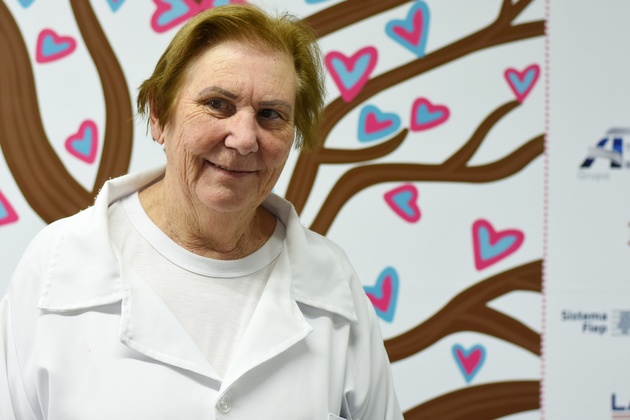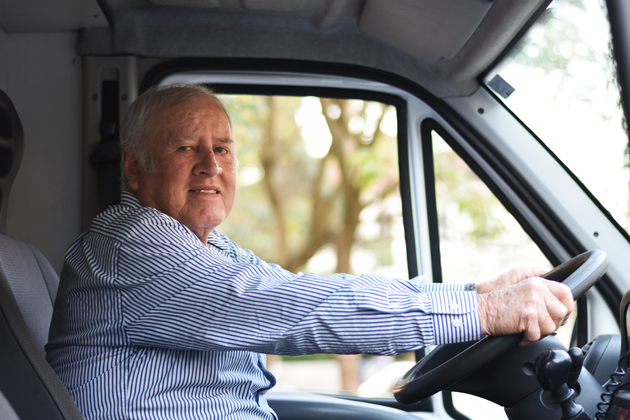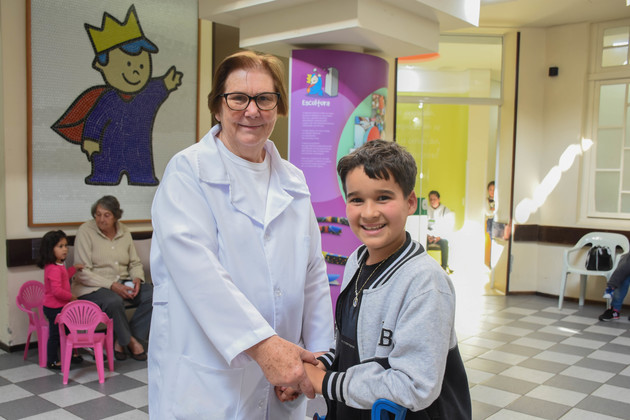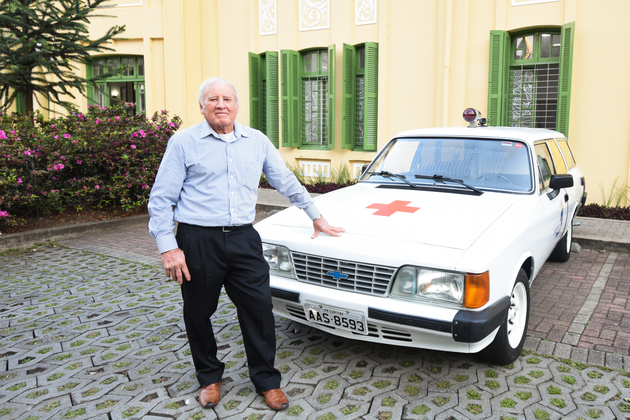Pequeno Príncipe’s history was written by many hands
Meet some of the staff that have had the privilege of following the institution’s growth

Nursing assistant Wladyslawa Provessi was born in Germany and came to Brazil when she was only three years old. For the past 51 years, she has been dedicated to the care of children and adolescents undergoing treatment in Pequeno Príncipe Hospital. She is the staff member who has been in the institution for the longest. In more than half a century of work, she has followed the Hospital’s growth and has experienced numerous stories that she remembers fondly.
“My story with the Hospital started on the 1st of April of 1968. A little before that, I was finishing my Nursing degree and had to complete my internship. When I came in contact with pediatrics, I fell in love,” she shared. Wladys, as she is affectionately called, explain that, everything was very different in her time. “Parents weren’t allowed to stay with their children during hospitalization. On Sundays, the visiting days, we dedicated ourselves to make sure the little patients were dressed up, wearing the nicest clothes from donations. The syringes were made of glass and had to be boiled to be sterilized. Needles were made of inox and had to be ‘sharpened’ regularly,” she recalls.

Driver Nelson Gonçalves has dedicated 40 years to Pequeno Príncipe and recalls a time when there was a wood burner lit, all day and night, to fuel the boiler where many of the Hospital’s equipment were kept. He drove the first van that was used as the institution’s ambulance, and then a Caravan, until he reached the current models. “The kids had to be taken to other places for exams and catheterisms. Now, the Hospital offers everything right here,” he stated.

With more than 40 years in Pequeno Príncipe, oncologist physician Flora Mitie Watanabe also followed the evolution of the institution and of medicine itself. Working in a period where diseases were still not very well known, without protocols and advanced medication, presented daily woes. “Back then, in the 1970’s, cancer was a death sentence. We would work through things day by day. We would decide what to do that week, but we wouldn’t know what to do the following week. And we still cured many children. There wasn’t the internet or Google, and it was difficult to access scientific papers. Pediatric Oncology was beginning in Brazil,” the doctor points out. “Today, in our service, we have a survival rate of around 78%. It’s a good number, but we always want more and the best for our boys and girls.”
Love for the work

What hasn’t changed over the years is the sensitivity, compassion and respect shown by Pequeno Príncipe’s staff and these traits are present in the institution’s daily activities and DNA. “The love for the children has always come in first place,” shared Wladys.

“The Hospital is my second home. Everybody that works here works with love. The person begins here and never wants to leave. While my legs still work, I want to be here,” told the driver Nelson.
For the physician Flora, responsible for telling families tough diagnosis such as children’s cancer, compassion and empathy are the only ways possible to work in an institution such as Pequeno Príncipe. “There are many ways to talk to families. You have to always have hope. You have to listen to their worries, distress, and life stories,” she teaches.

In the many lessons she’s learned in over 40 years working in the Oncology Service, she remembers the story of Rutinha, a patient who was very dirty when she arrived for the appointment. “I told her mother off for bringing the child in that state, without bathing. Her eyes filled up with tears and she told me that, since she didn’t have enough money for the trip to Curitiba, she had hitchhiked on the road for a week. They had slept on the streets and under bridges, asking for money from strangers to be able to arrive. I was very embarrassed, apologized, and then solicited Social Services to help them find a place to rest. Rutinha was cured and now has her own children. And I learned that we can’t judge people by their appearances, that we’ll never be able to know exactly how much somebody else is in pain. The families, and especially the mothers who spend more time dedicated to their children, are the true heroes. I think I learned so much more from them than from books. I learned to be more humble. They’re the people who inspire me every day,” she shared.
More
Pequeno Príncipe completes 100 years
To celebrate the occasion, a website collects stories of lives that were transformed by the Hospital
2019 Gala celebrates Pequeno Príncipe’s centennial
Event honors Brazilian scientist Lygia da Veiga Pereira, businessman Paul J. Fribourg and journalist Paula Zahn
“Pequeno Príncipe Gamomics” teaches about new generation sequencing
The game is available for iOS and Android™ platforms
Other editions
©2026 . Pequeno Príncipe Complex . All Rights Reserved









